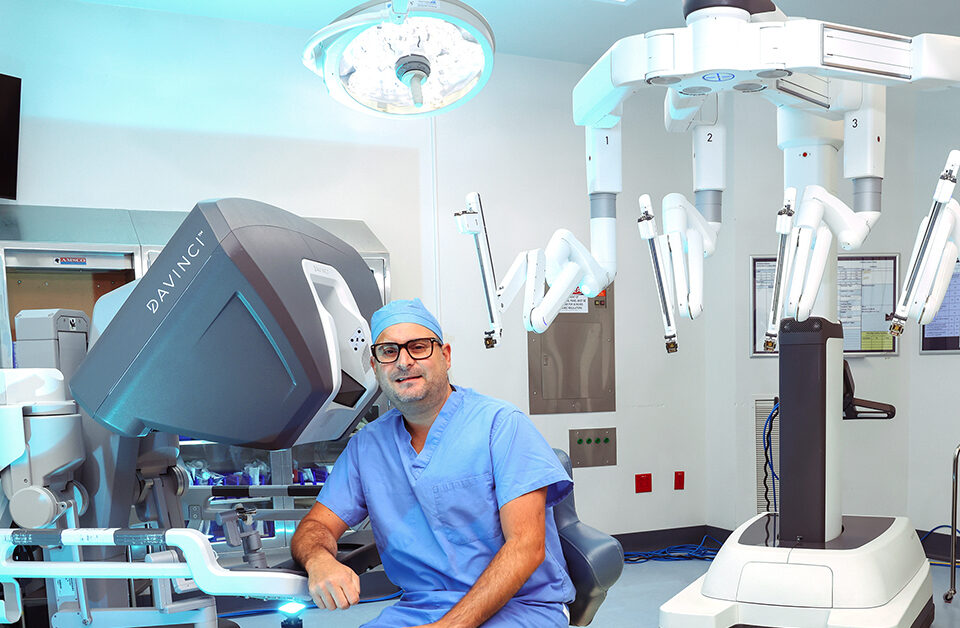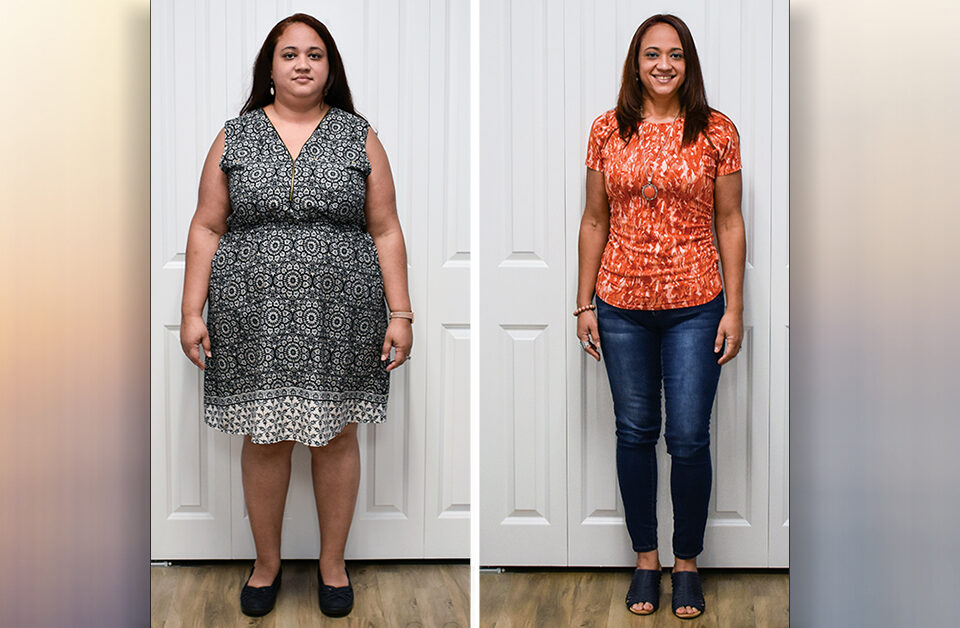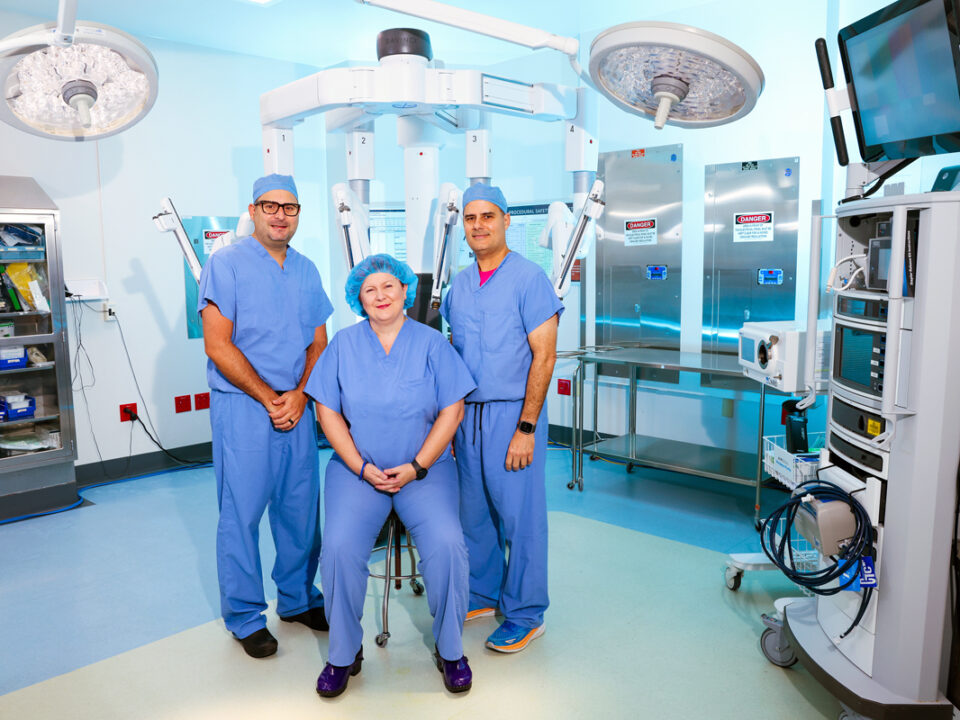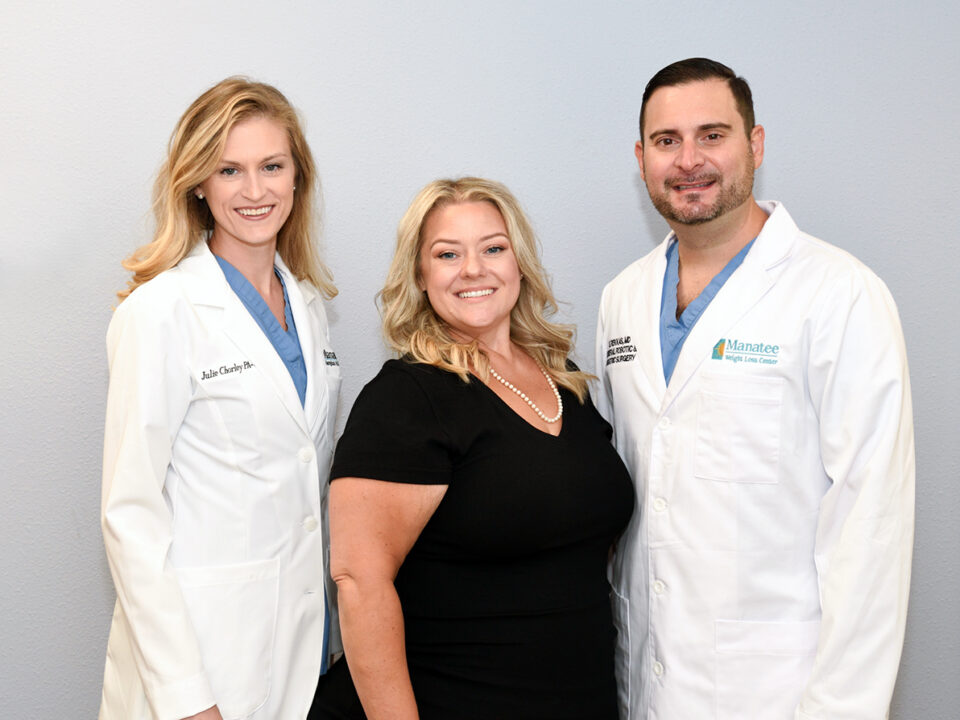

The last time Asia Bell checked, the taekwondo medals she won in the AAU Junior Olympics were still in the box her mother packed before she moved to her new home in Virginia. Like her athletic career in general, Asia left the medals and a sizeable assortment of trophies and ribbons behind when she went off to college, and since moving to Florida a few years ago, she has yet to retrieve them. “I was a fourth-degree black belt,” says Asia, who won a gold medal in sparring and a silver medal in form when she was 12 years old. “I was also a competitive cheerleader and played lacrosse in high school.” Competitive cheerleading involves acrobatic skills, and participants are required to take gymnastics classes and perform a standing handspring just to make the team. Asia, 28, hung up her pompoms and lacrosse stick when she went to college. For several years, she’d wished she hadn’t because the lack of exercise and a change in lifestyle triggered a metabolic change that she soon lost control of. “When I first went to college, instead of playing sports and doing extracurricular activities, I was working two jobs and going out with friends during my free time,” Asia explains. “I didn’t change my eating habits. In fact, I was probably eating worse than I ever had. The next thing I knew I was getting on the scale and saying, Whoa, what happened?” During her first two years of college, Asia gained 40 pounds. Over the next three years, Asia gained more than 100 pounds. Then she met her future husband and further lost track of her weight. Before she knew it, she weighed 272 pounds. “That’s when I realized my weight gain was out of control,” she says. “I started trying all these diets, and I’d lose a little weight but eventually gain it all back again. After all that, I finally decided to see Dr. Rekkas.”


Before Photo Courtesy Asia Bell
After Photo Jordan Pysz / iFoundMyDoctor.com
Since undergoing a robotic sleeve gastrectomy, Asia has lost nearly 100 pounds
Less Is More
Bariatric surgeon Stelios Rekkas, MD, FACS, FASMBS, of Manatee Weight Loss Center/Manatee Physician Alliance, is medical director of the bariatric program at Manatee Memorial Hospital and met with Asia. Asia learned of Dr. Rekkas during a search inspired by her sister, who had resolved a similar weight-gain issue by undergoing a procedure where 60 to 80 percent of her stomach was removed by robotic arms controlled remotely by a surgeon. The surgery is called a vertical sleeve gastrectomy, and as its name suggests, it leaves the patient’s reduced stomach in the shape of a small sleeve. With a smaller stomach, patients eat less because they feel full faster, which naturally leads to weight loss. The robotic sleeve gastrectomy has a far lower complication rate than gastric bypass surgery and, according to Dr. Rekkas, it has surpassed the Lap-Band® System as the most common bariatric procedure performed on people suffering with obesity. “Lap-Band surgery has been all but phased out because patients were only losing about 40 percent of their extra weight through it,” Dr. Rekkas explains. “With robotic sleeve gastrectomy, patients can lose up to 80 percent of their excess weight. “And because there are no big incisions, this is a far more elegant procedure that allows the patient to get home and return to work quicker. In fact, most patients are up and walking four hours after surgery. And the complication rate is less than 1 percent.” In order to qualify for a robotic sleeve gastrectomy, a person must be approximately 100 pounds over their ideal body weight or have a body mass index (BMI) of at least 35 with medical conditions or 40 without medical conditions. At Manatee Memorial Hospital, Dr. Rekkas performs this specialized surgery using a sophisticated robotic tool called the da Vinci® Surgical System. Dr. Rekkas lauds the hospital for its investment in the robotic platforms. “The hospital has done a great job of providing us with the tools we need to do our best work,” he states. “It takes the initiative to be an advanced minimally invasive surgical center, and the hospital provides excellent nursing care. “In addition, Manatee Memorial Hospital provides a bariatric nurse navigator for these patients that we work hand in hand with. As a result, most patients stay only one day in the hospital, and with the help of the bariatric nurse navigator and the hospital’s nursing staff, we make an impact and a difference in our patients’ lives.”
Multidisciplinary Approach
Hoping it would make a difference in her life, Asia opted to have the robotic sleeve surgery after meeting with Dr. Rekkas, who typically spends about three to six months prepping patients for the procedure by guiding them through an “optimization period.” “We take a multidisciplinary approach to weight loss, so it’s not just a matter of having surgery,” Dr. Rekkas informs. “Prior to surgery, our patients meet with our in-house dietician, and we get them on a diet and exercise program. “We want them to fully understand the diet and exercise portion because that part is very important. We also complete blood work and endoscopies to make sure there aren’t any other conditions that may prevent them from having the surgery. “Our goal is to get our patients as healthy as we can prior to surgery, and that includes going through a psychological screening. There is an entire process that leads up to the surgery itself, which is what we’re working toward during the optimization period.” Dr. Rekkas says the surgery itself lasts about 45 minutes. During that time, Dr. Rekkas controls four robotic arms and begins by making five small incisions in the abdomen of the patient, who is put to sleep through general anesthesia. “Everything is done through those little incisions, one of which is about an inch long, while the rest are less than half an inch in length,” Dr. Rekkas states. “The size of those incisions is one of the reasons people have less pain and recover so quickly.” For years, the procedure was done through an incision that was about a foot long, and the surgeon stood over the patient. It was sometimes difficult to see inside the abdomen and very stressful, Dr. Rekkas says. “But now, once those incisions are made, a camera goes in one of them that allows me to see everything inside clearly and in a three-dimensional environment,” he details. “Next, a retractor elevates the liver, which allows me to go in and free up the stomach. Then a special robotic stapler clamps the stomach, seals it and cuts it. Finally, the part of the stomach that has to be taken out gets removed through another small incision.”
“Forever Grateful”
Asia spent six months preparing for her surgery, which she had in December 2019. At the time, she weighed 240 pounds. She now weighs 148 pounds and can fit into clothes she wore in high school. “I recently tried on my high school graduation dress, and it was a size too big,” Asia reveals. “I’m actually smaller now than I was when I was in high school.” While Asia has steadily lost weight and inches over the past two years, she has regained the confidence and energy that disappeared while she was packing on those extra pounds. “I’m going back to school to get my master’s degree in business administration, and I’m more active in my company,” says Asia, who works as a solution specialist for Verizon Wireless. “I’m a lot more active than I was. “My husband and I recently went to a Halloween event at a local theme park. After we’d already walked the whole park twice, I asked him, Do you want to ride some rides next? “My husband said, Sure, but do you remember the last time we came here two years ago? You only got through half of the Halloween haunts, and you wanted to go home. I hadn’t even thought about that because I was having so much fun. “Little things like that justify my decision to get the surgery. I was a little hesitant at first, but Dr. Rekkas made me feel very confident. I’ve told him many times that I am forever grateful for him.”


Photos Courtesy of Asia Bell
Since undergoing a robotic sleeve gastrectomy, Paula has dropped more than 80 pounds.
Life-Saving Surgery
Asia’s mother, Paula Bell, is grateful as well. She’s grateful for what Dr. Rekkas did for Asia and for what Asia did for her. Paula struggled with weight gain as well, at one point ballooning to 220 pounds. “Obesity runs in my family,” Paula points out. “My parents were obese; my grandparents were obese; a lot of my cousins were obese. “I started to gain weight around age 26. After I had my first child, my weight started to get out of control. After menopause, it got even worse. No matter what diet or program I tried, I couldn’t keep off the weight.” Paula, 57, and Asia often tried losing weight together. They joined the same weight-loss programs and followed the same diets, cheering each other on and encouraging one another to keep fighting. But to no avail. “As I gained more weight, some of the most basic things in life became very difficult,” Paula laments. “Something as simple as going up and down a flight of stairs was hard. “My husband and I enjoy riding bicycles, but after I gained all the weight, I didn’t have the energy to do that. I was always tired. If I did anything strenuous, I felt like I was going to have heart palpitations.” The problems caused by Paula’s weight gain peaked as Asia was beginning Dr. Rekkas’optimization program in preparation for her robotic sleeve gastrectomy. Intrigued by what her daughter was telling her about the program, Paula began to investigate it herself. “The food was really, really good,” Paula enthuses. “And I was seeing how the weight was coming off Asia, so I thought, Maybe I should do this. Then Asia said, Mom, you’ve got to do this.” Encouraged by her daughter’s results, Paula visited Dr. Rekkas for the first time in early 2020. She weighed 220 pounds. In May 2020, she had a robotic sleeve gastrectomy at Manatee Memorial Hospital. The surgery probably saved her life. “When I had my surgery, I was very top heavy,” Paula explains. “Because of the size of my breasts, I couldn’t feel any lumps there. At one point I thought I did feel something. After I had my surgery and started losing weight, I definitely felt a lump in my breast.” Like obesity, breast cancer runs in Paula’s family. As a result, she asked her doctor to immediately perform a biopsy of the mass. That biopsy confirmed her suspicions, and in November 2020, Paula had a double mastectomy. Now she’s “cancer free” and feeling better than she has in years. “I’m a cancer survivor and that’s due in large part to my decision to have the robotic sleeve gastrectomy,” Paula effuses. “If I hadn’t had that surgery, I would never have found that lump. I believe the robotic sleeve gastrectomy truly saved my life. “I’m living a healthier, more active life now. I weigh 140 pounds, and I’m active and energetic again. I’m cycling 15 to 20 miles at a time, and I’m enjoying my life
so much more. “I’ve always wanted to go snorkeling in Hawaii, so we’re going to do that. And believe it or not, I want to jump out of an airplane. I want to go skydiving, and thanks to Dr. Rekkas’ surgery, I’m going to get the chance to do that and a lot more. “I’m very excited about what’s ahead for me, and I’m just as excited about my daughter and what’s ahead for her. To see her blossom and come into her own and feel good about herself again makes me feel even better. “That’s why I have only good things to say about Dr. Rekkas and his program. His program is awesome because it changes the way you eat in a good way, and he’s so caring and compassionate. He wants to help his patients, and he definitely helped me and Asia.”


Before Photo Courtesy Gianna Soussan
After Photo Jordan Pysz / iFoundMyDoctor.com
Since undergoing a robotic sleeve gastrectomy, Gianna has lost more than 120 pounds.
Singing My Life
Gianna Soussan was only 30 seconds into the first song of her second-round audition when the American Idol judges cut her off and asked her to sing something else. About 15 seconds into that tune, the judges cut her off again. So ended Gianna’s first shot at stardom. Just 15 at the time, she took the rejection in stride, considering it a victory that she made it through the first round of the national competition, even if that meant never performing for the celebrity judges on live television. Now 26, Gianna has yet to give up on her dream. In fact, she’s now more confident in her ability to attain it, and not just because she’s been expanding her repertoire and honing her craft. Gianna recently overcame a serious health issue she has battled since the third grade. “Even though I’ve always been very physically active, I’ve always struggled with my weight,” Gianna confirms. “I played softball, basketball and volleyball and was also on the swim team in high school, but my body type was just different than that of a lot of my friends. “I started dieting when I was in eighth grade. At one point, my mom worked with a nutritionist to align my caloric intake and mitigate the continuous weight gain. But nothing worked, which was really discouraging.” While in college, Gianna learned that part of her weight problem was due to Hashimoto’s disease, a hormonal condition that can slow the metabolism. By then, she was also dealing with other debilitating health issues. “I had ulcerative colitis and was struggling with sleep apnea, migraine headaches and asthma,” Gianna notes. “I also had irritable bowel syndrome. Then I learned I was prediabetic. That’s when I knew I had to do something about my weight.” By then, the decision to do something more than another diet had been made. The diagnosis, she says, justified her decision to have a robotic sleeve gastrectomy. “I had done research on the procedure, and when I did a search for the best bariatric surgeon near me, Dr. Rekkas’ name came up,” Gianna relates. “I called his team the next day, went in for a consultation the following week and soon after started the program. “I felt I needed to have the surgery because I hated what I was seeing in the mirror and hated how I felt. I wasn’t feeling well, and when I was out with people, I was so self-conscious of how I looked that I had trouble focusing and engaging with them.” Gianna weighed 271 pounds when she met Dr. Rekkas in spring 2020. After completing the optimization program, she had the surgery in September. Now she weighs less than 145 pounds and describes the surgery as “life-changing.” “I have a whole new sense of confidence that I believe will have a big impact on my stage presence,” says Gianna. “I also feel much healthier because I can do things that I couldn’t do before, things that a lot of people never think of, like sitting down comfortably and crossing your legs. I don’t worry about the seat belt fitting on an airplane, whether my thighs will bleed because they’re chaffing or if I can sit on a roller coaster or kiddie ride with my 2-year-old nephew. “It’s not having to worry about those little things that remind me that getting this surgery was absolutely the right thing for me to do. And I’m really glad I found Dr. Rekkas and had him do the surgery because he’s definitely the best. “He’s extremely passionate about his job, and he truly cares about his patients. He’s fantastic and so is his entire team. They’re a big part of my weight-loss family, and it’s been awesome having them by my side throughout this journey.”











Leave a Reply